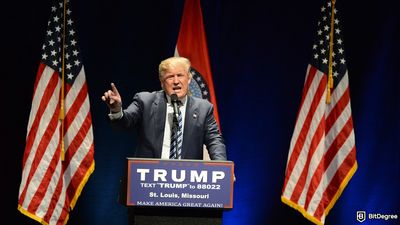The Secret Service will be looking to protect the US citizens from malicious activity related to digital currency, and educate them on security measures for their crypto assets.
With crypto receiving more recognition around the world, and governments finally setting in cryptocurrency regulation frameworks, law enforcement agencies in the United States will seemingly get involved by bringing awareness to the potential dangers of digital assets.
According to an announcement issued by the United States Secret Service, the agency will be investigating criminal behavior linked to cryptocurrencies and will attempt to educate citizens on digital assets through its Cryptocurrency Awareness Hub.

Did you know?
Want to get smarter & wealthier with crypto?
Subscribe - We publish new crypto explainer videos every week!
What is Odysee & LBRY? Is Decentralized YouTube Possible? (ANIMATED)


Jeremy Sheridan, who is the Assistant Director of the Secret Service Office of Investigations, spoke on the necessity of public awareness on digital assets and their security due to blockchain technologies being implemented into numerous fields of work. He added:
"Our obligation to enforce crimes against the nation’s financial systems includes both informing the public on how digital assets work and partnering with them to identify, arrest, and prosecute those engaging in crimes involving digital assets."
The US Secret Service highlights the importance of deploying the cryptocurrency awareness hub by naming transnational cybercrime as the key reason for its establishment. The agency looks to work alongside the US Department of Treasury in order to seize illegally obtained assets, and investigate the circumstances leading to such criminal activities.
With that being said, the Secret Service points out that it does not consider digital assets as "inherently criminal", but rather a new form of payment with flaws that require security and monitoring.
In fact, the agency uploaded a video presenting its initiatives in the blockchain industry, hoping to prevent "illicit use of digital assets, including cryptocurrencies to facilitate crimes like ransomware attacks."
This puts digital assets in a slightly more favorable position as governments start seeing them as legitimate forms of payment that, during instances of criminal activity, are sometimes even easier to track due to their digital footprint.






















